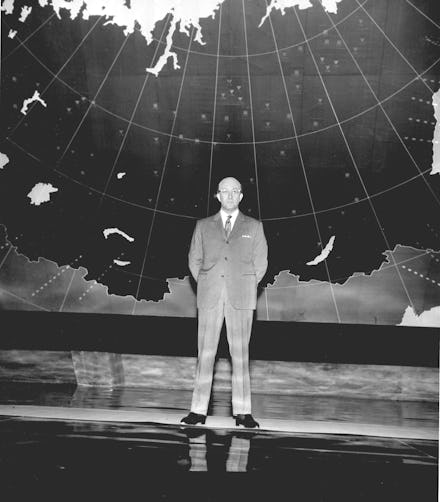Everything you need to know about the Cold War in 5 minutes

Russian President Vladimir Putin allegedly directed an operation to interfere in the U.S. election to help Donald Trump win. In response, on Thursday, President Obama expelled 35 Russian spies and diplomats from the U.S. and placed sanctions on Russia's two top intelligence groups.
"These actions," Obama said in a statement, "are not the sum total of our response to Russia's aggressive activities."
It was, cybersecurity expert James Lewis told Wired, the "biggest retaliatory move against Russian espionage since the Cold War." Though the Russians initially promised "an adequate and mirror response," Putin said Friday that his administration would not retaliate against the U.S.
Still, many experts have deemed the relationship between the U.S. and Russia to be at its worst since the Cold War, and some have wondered if we're witnessing the beginning of a "Cold War for the digital age."
What was the Cold War?
The Cold War was a more-than-40-year conflict between the Western Bloc, led by the United States, and the Eastern bloc, led by the U.S.S.R.
World War II had made strange bedfellows of the U.S. and the Soviet Union. The two nations were allies in combating the Axis powers but had a strained relationship; the U.S. was concerned with dictator Joseph Stalin and the potential spread of Communism, and the Soviets objected to American intervention in international affairs and refusal to recognize the U.S.S.R. as a legitimate international player on the world stage.
After the war, with communism spreading across Eastern Europe, the conflicts in the U.S.-Soviet relationship intensified. America adopted the Truman Doctrine, which sought to contain Communism where it was.
"It must be the policy of the United States to support free peoples who are resisting attempted subjugation by armed minorities or by outside pressures," President Harry Truman said at the time.
Amid the rising tensions, both countries built up arsenals of weapons of mass destruction in a massive arms race. Though the two sides did not engage in direct combat, the conflict resulted in a number of proxy wars, including the Korean War and the Vietnam War.
The Cold War ended with the collapse of the Soviet Union in 1991.
Aftermath of the Cold War
The dissolution of the U.S.S.R. gave the United States "a degree of unipolarity not seen since the high point of the Roman Empire," according to historian Norman A. Graebner.
Former Soviet President Mikhail Gorbachev — who with President Ronald Reagan took steps to end the Cold War — said in a pair of recent interviews that the U.S. has been "provoking" Russia, and that this is to blame for the poor relationship between the two nations.
The Nobel laureate also said the West failed to build lasting peace following the dissolution of the Soviet Union and instead isolated Russia in what Gorbachev termed western "triumphalism."
Putin, in a statement Friday, said Obama's sanctions were "unfriendly steps aimed to further deteriorate Russia-U.S. ties," but that he would not retaliate because he believes the incoming Trump administration will "restore" relations between the two countries.
"We will not stoop to the level of 'kitchen' irresponsible diplomacy," Putin said in a statement. "Further steps toward the restoration of Russian-American relations will be built on the basis of the policy, which will be carried out by the administration of President D. Trump."